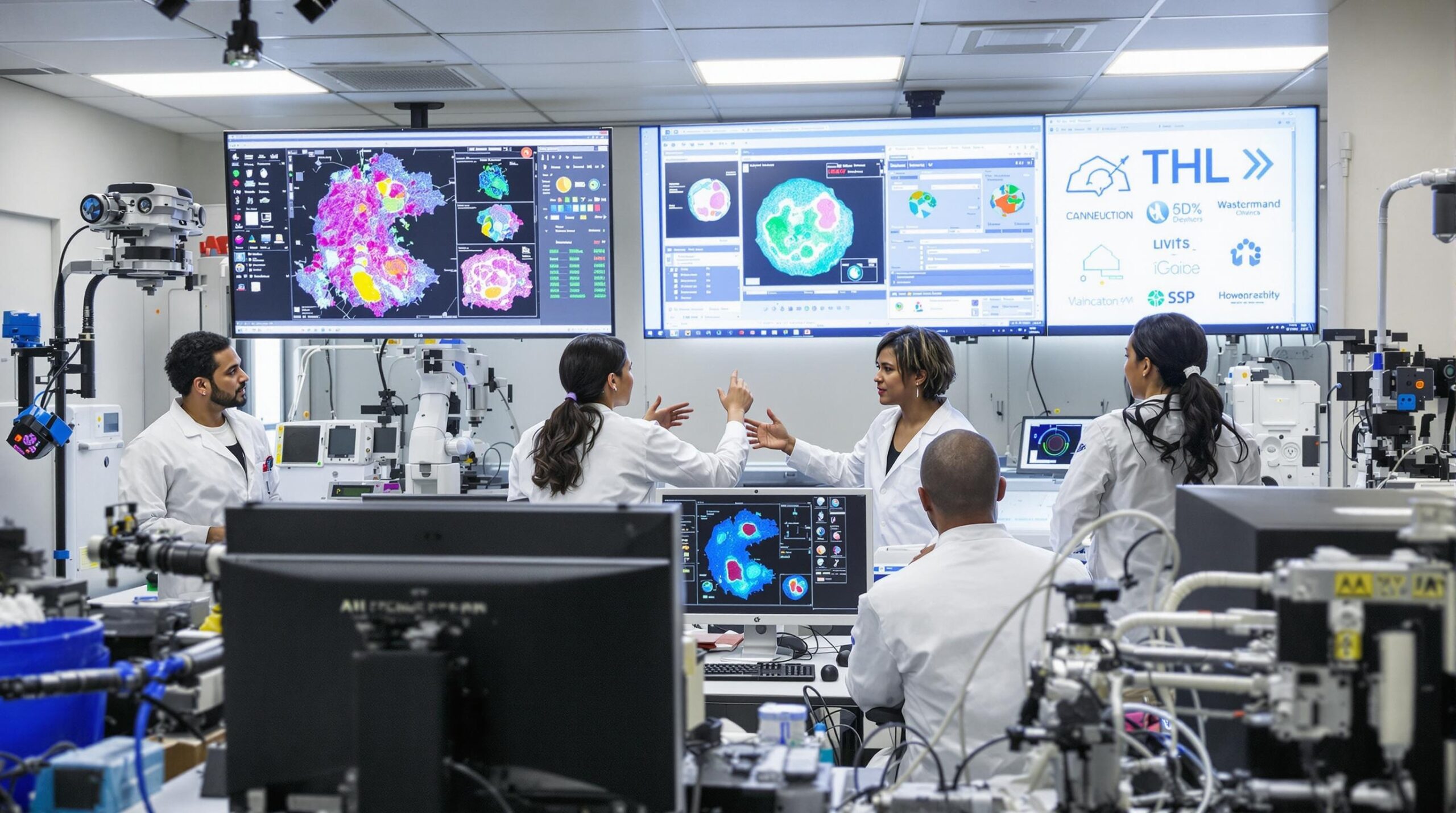Cancer treatment is undergoing a dramatic transformation. Artificial intelligence (AI) is emerging as a powerful ally in this medical revolution. From early detection to tailored therapies, AI is changing established workflows. Many clinicians and researchers now rely on machine learning engines to analyze massive data sets. This shift is enhancing diagnostic accuracy and optimizing patient outcomes.
Enhancing Early Detection with AI Algorithms
Traditional cancer detection methods often depend on manual image interpretation. Radiologists might miss subtle clues in complex scans. With AI, image analysis reaches new levels of precision. Deep learning algorithms scrutinize radiological images like mammograms, CT scans, and MRIs with remarkable speed. They can identify patterns invisible to the human eye, flagging potential abnormalities earlier.
Early studies show that AI systems sometimes surpass doctors in pinpointing early-stage tumors. For example, Google’s LYNA algorithm can detect breast cancer metastases in lymph node biopsies with higher accuracy than experienced pathologists. Additionally, AI programs learn quickly, constantly refining their detections through training on extensive, anonymized image databases. Faster and more accurate detection often leads to improved survival rates.
Personalizing Cancer Therapies
Personalized medicine promises to match treatments to the unique biology of each patient. However, interpreting masses of genomic and clinical data is challenging for humans alone. AI platforms are adept at parsing this information quickly. Leveraging machine learning, these tools sift through genetic mutations, tumor profiles, and patient histories. The outcome is more precise recommendations for therapies or clinical trials.
IBM Watson for Oncology exemplifies this shift. The AI platform analyzes medical literature, trial results, and individual cases within seconds. It suggests evidence-based treatment options that doctors might overlook due to information overload. Cancer centers are already integrating AI-driven tools to tailor immunotherapies and targeted drugs, greatly enhancing the odds of remission while reducing side effects.
Discovering New Drug Candidates with AI
Drug development is a time-consuming, costly process. AI-driven screening platforms now accelerate the identification of promising compounds. These systems analyze chemical structures and biological activity far faster than traditional research methods. They uncover hidden connections between molecules and cancer types, dramatically expanding the pool of potential therapeutics.
BenevolentAI and other startups use machine learning to mine scientific literature and expand the drug discovery pipeline. In 2020, AI models identified several existing drugs with potential against certain cancer cell lines. The speed and accuracy of AI-assisted drug discovery could shorten timelines from years to months. This approach may also reduce research and development costs.
Advancing Precision Radiotherapy
Radiotherapy is a mainstay in cancer treatment, yet planning optimal doses poses significant challenges. Each patient’s anatomy and tumor location requires highly individualized therapy. AI systems transform radiotherapy planning by automating contouring, dose estimation, and minimizing injury to healthy tissue. The software simulates outcomes for different plans, recommending the safest, most effective approach.
Researchers have developed AI-powered adaptive radiotherapy tools that adjust treatment parameters in real time. These advances enable doctors to respond to tumors that shrink or shift between sessions. Greater precision reduces harmful side effects and increases curative potential. Clinical trials already show improved patient outcomes with these AI-driven systems.
Revolutionizing Pathology and Biomarker Discovery
Pathology lies at the heart of cancer diagnosis, guiding treatment decisions. Now, AI is helping pathologists analyze tissue samples with exceptional accuracy. Algorithms rapidly scan biopsy slides, measuring cell morphologies and identifying biomarkers linked to specific cancers. These tools help reduce diagnostic errors and standardize interpretations across multiple labs.
By harnessing AI, pathologists can detect micro-level changes that signal response or resistance to therapy. This real-time information is crucial for adapting treatment plans rapidly. Integrating AI into pathology workflows is steadily improving the speed and precision of biomarker discovery. New discoveries are swiftly translated into actionable strategies for clinicians.
Optimizing Clinical Trial Design and Recruitment
Recruiting patients for oncology trials can take years. Finding the right patients for specific therapies is often complicated. AI technologies search electronic health records and genetic databases, rapidly identifying eligible participants. Machine learning also predicts which protocols are likely to succeed, streamlining trial design and regulatory approval.
AI-assisted recruitment opens doors for more diverse patient populations. As more data is collected, algorithms become better at matching candidates to experimental therapies based on their individual profiles. This process not only speeds up clinical research but also enhances the generalizability of results to real-world populations.
Challenges and the Road Ahead
Despite these remarkable advances, AI-driven oncology faces several hurdles. Data privacy remains a key concern as medical systems become more interconnected. Large data sets must be diverse and accurately labeled for algorithms to avoid bias. Additionally, integrating AI tools into existing hospital infrastructure presents practical challenges for IT departments and clinicians.
Collaboration between AI developers, medical professionals, and regulatory agencies is critical. Robust validation in clinical environments is essential before AI-driven tools can replace or augment human decision-making. Moreover, ethical considerations around accountability and transparency continue to be actively debated across the healthcare industry.
Transforming Outcomes: AI’s Promise in Oncology
The promise of AI in cancer care already resonates across the globe. Earlier detection, tailored therapies, and faster drug discovery are now a reality for many patients. Hospitals and research centers are integrating AI-driven solutions into daily practice. These changes are producing measurable improvements in diagnostic accuracy and survival rates.
Cancer remains a deeply complex adversary. Nevertheless, AI is breaking down barriers in knowledge, speed, and personalization. The cumulative impact of these breakthroughs suggests a future where every patient receives the most effective therapy from day one. The continued evolution of AI in oncology holds hope for millions seeking better outcomes and longer, healthier lives.


